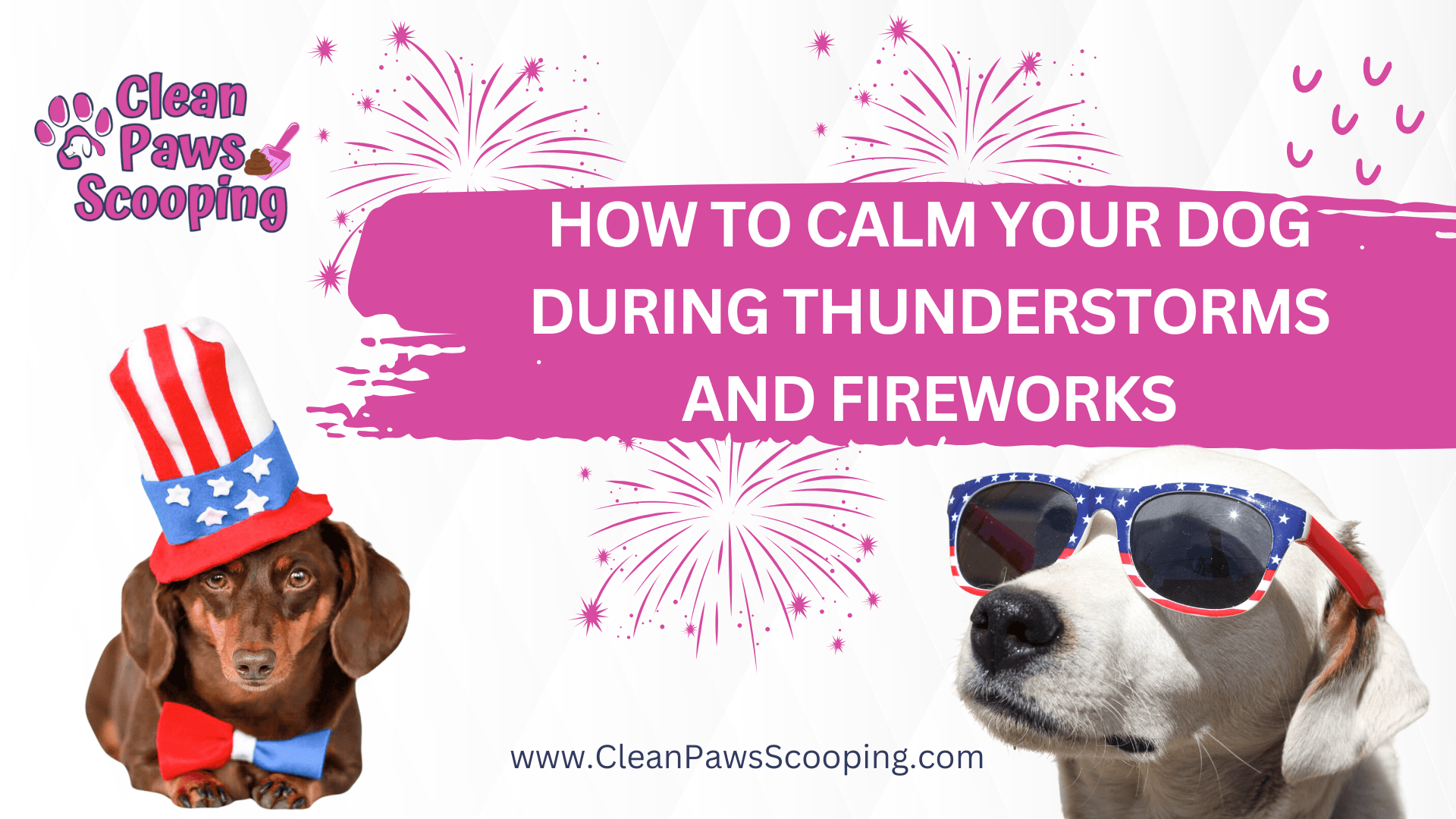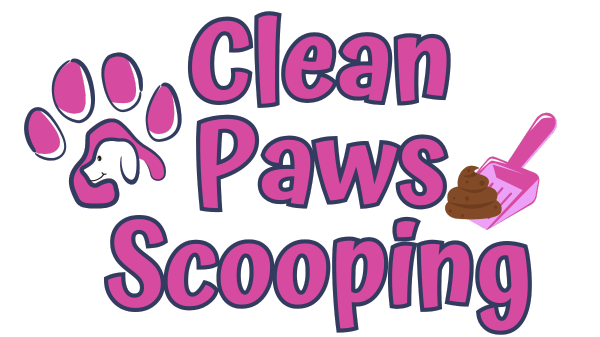How to Calm Your Dog During Thunderstorms and Fireworks

Summer in Georgia brings its fair share of afternoon thunderstorms and festive fireworks — especially around the Fourth of July. While the sights and sounds can be exciting for humans, many dogs experience deep anxiety during these events. Loud booms, flashing lights, and changes in barometric pressure can all trigger stress responses that make your pup feel scared or unsafe.
If your dog trembles, hides, barks excessively, or becomes destructive during storms or fireworks, you’re not alone — and there are ways to help. In this post, we’ll explore practical strategies to calm your dog during these summer events and create a safe, reassuring environment they can count on.
1. Understand the Signs of Stress
Dogs can’t tell us when they’re scared in words, but their behavior speaks volumes. Common signs of fear or anxiety during storms or fireworks include:
- Pacing or restlessness
- Panting or drooling
- Hiding in closets, under furniture, or behind you
- Barking, whining, or howling
- Shaking or trembling
- Accidents indoors (even if potty trained)
- Destructive behaviors like chewing or scratching
Recognizing the signs early can help you intervene before your dog’s fear escalates.
2. Create a Safe Haven
Your dog needs a space they associate with comfort and safety. This could be a crate (if they’re crate-trained), a closet, a bathroom, or even a quiet corner with their bed and favorite toys.
Tips for building a calm space:
- Use blackout curtains to muffle flashes of light.
- Add white noise or calming music to help drown out the sound of thunder or fireworks.
- Consider playing a YouTube video of soft ambient sounds for dogs — many are made specifically for stress relief.
- Add familiar items like blankets, clothing with your scent, and chew toys.
Once your dog has found a space they like, let them stay there during stressful times — don’t force them out.
3. Use Calming Tools and Products
Several over-the-counter products can help reduce anxiety:
- Thundershirts or anxiety wraps apply gentle pressure around your dog’s torso, which has a calming effect for many pups.
- Calming pheromone sprays or diffusers (like Adaptil) mimic the scent of a nursing mother, which can soothe some dogs.
- Natural calming treats or supplements made with ingredients like melatonin, chamomile, or L-theanine can help take the edge off.
CBD oil or chews are increasingly used to support dogs with severe anxiety — but talk to your vet first before trying CBD products.
4. Desensitize Your Dog to Noises
You can start preparing your dog for fireworks and storms by gradually desensitizing them to loud noises over time.
How to start:
- Find audio recordings of fireworks or thunder.
- Play them at a low volume while engaging your dog with treats, toys, or praise.
- Gradually increase the volume over time, only moving forward if your dog stays calm.
- This process may take weeks, but it builds resilience so real events aren’t as scary.
Be patient. If your dog becomes visibly upset, stop the training and try again later at a lower intensity.
5. Stay Calm and Present
Dogs take emotional cues from their humans. If you act nervous, over-comfort them in a panicked tone, or hover too much, it can reinforce the idea that something is wrong.
Instead:
- Remain calm and relaxed.
- Speak in a normal, soothing tone.
- Distract your dog with training cues (like “sit,” “stay,” “touch”) and reward them when they respond.
- If they want to snuggle, great — just let it be on their terms.
Your calm presence is often the best reassurance they can get.
6. Plan Ahead for Fireworks Displays
If you live in neighborhoods like Smyrna, Duluth, Roswell, or Johns Creek, you probably know that local fireworks start days before July 4th. Preparing in advance can make a big difference in how your dog handles loud celebrations. Taking a few proactive steps and knowing the things to do before fireworks start helps reduce anxiety and keeps your dog feeling safer when the noise begins.
Here’s how to get ahead of it:
- Exercise early in the day. A tired dog is often a calmer dog.
- Feed dinner before the noise starts. Some dogs won’t eat once they’re anxious.
- Take potty breaks early so you’re not out during the loudest moments.
- Close windows, blinds, and doors before the noise begins.
Consider playing a movie or music in the background to help mask sounds.
7. When to Talk to Your Vet
If your dog’s anxiety is severe — to the point of self-harm, escape attempts, or panic attacks — it’s time to get professional help.
Your vet may recommend:
- Prescription anti-anxiety medication
- Behavior modification strategies
- Referral to a certified dog behaviorist
An individualized plan can make a huge difference in your dog’s quality of life.
Ensure your yard is clean for all those play sessions!
Help Your Dog Weather the Storm
Thunderstorms and fireworks are part of Georgia summers, but they don’t have to ruin your dog’s peace of mind. With the right preparation and tools, you can help them feel safe, loved, and supported — no matter what’s booming outside.
And if your dog ends up doing zoomies in a muddy yard or has a few accident spots after a scary night?
We’ve got you covered. Clean Paws Scooping is here to keep your yard spotless all season long — even during the loudest summer celebrations.




